
Uso de SHOULD/SHOULDN’T Gramática
Should comes first in the verb phrase (after the subject and before another verb): I should go home now. It should probably be sunny at that time of year. Not: It should may be sunny. or It may should be sunny.. The negative form of should is shouldn't. We don't use don't, doesn't, didn't with should: There shouldn't be many.

Giving Advices (The use of should / shouldn´t) 8th grade YouTube
Should, shouldn't. Modal verbs. A2. Pre-intermediate English grammar and exercises. We use the verb 'should', 'shouldn't' to give somebody advice.
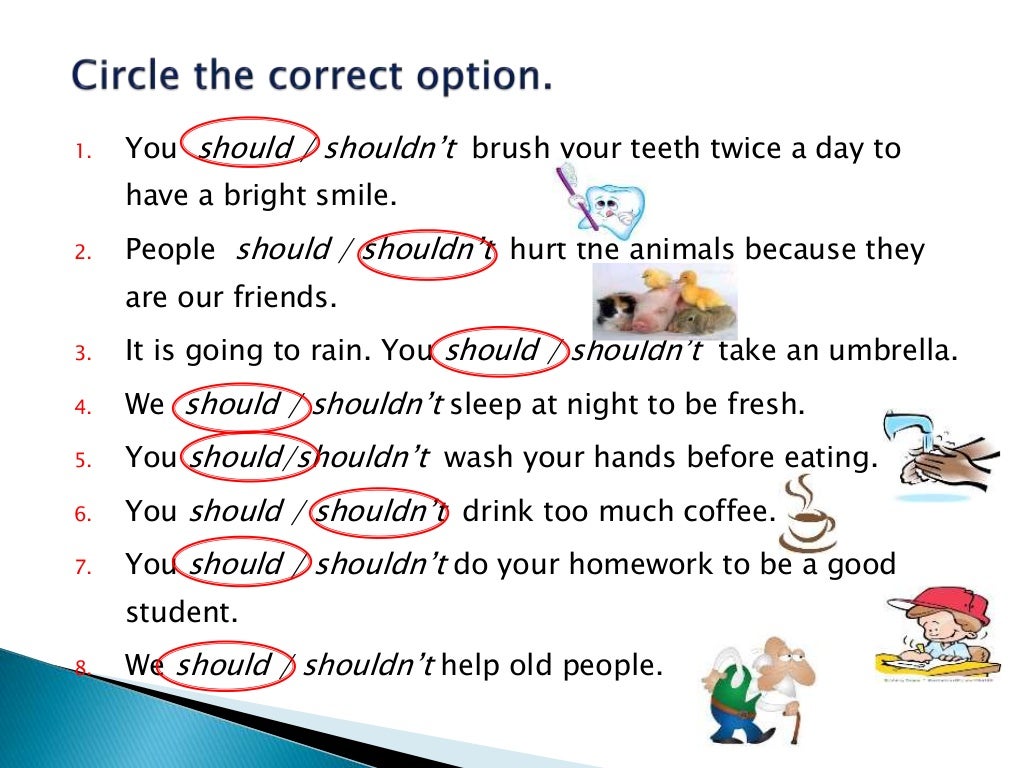
Should and shouldn't
Complete the sentences. Use the present continuous form of the verb in brackets. Use contractions where possible.

Should / Shouldn't Teaching english, English exercises, Grammar
Enjoy English lessons! Music (in pop star part) by Krzysztof Pawczuk (http://krzysztofpawczuk.pl/)

SHOULDSHOULDN´T ESL worksheet by Katiana
should and shouldn't grammar songLyrics, classroom resources, slowed down mixes, and more.https://www.patreon.com/LearnEnglishwithBeatsResources🎧 Stream on.

ShouldShouldn't English ESL worksheets pdf & doc
Should and Shouldn't - Practice. Exercise. Click on the words in the correct order to make positives, negatives and questions with should and shouldn't. Tip! If you have no idea what word should go next, you can click on all the words one by one. Tip! We do not use shouldn't where there isn't any obligation at all.

Should Explicaciones de Inglés Guías, procedimientos y operaciones
Should - English Grammar Today - a reference to written and spoken English grammar and usage - Cambridge Dictionary

SHOULD & SHOULDN`T (B&W and Key included) FULLY EDITABLE ESL
Learn how to use SHOULD or SHOULDN'T to give advice, suggestions, opinions and recommendations in English. Should is a modal verb, and modal verbs are follow.
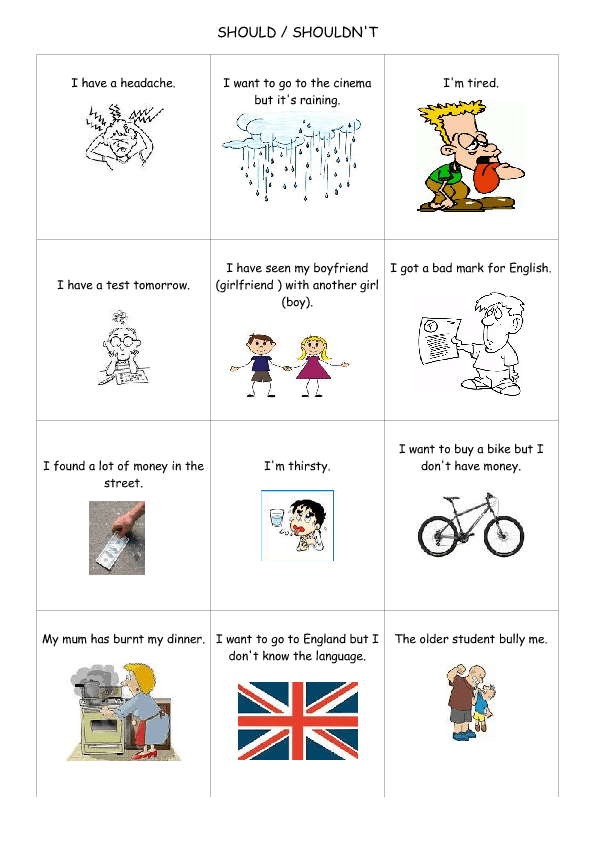
Should and Shouldn't
Should and shouldn't- modal verbs exercises. Elementary level esl. Index of contents. Can / could - exercises May / might Must / have to Shall / should Will / would Mixed modals - exercises Home. Can / could - exercises. May / might. Must / have to. Shall / should. Will / would. Mixed modals - exercises. Worksheets - handouts.
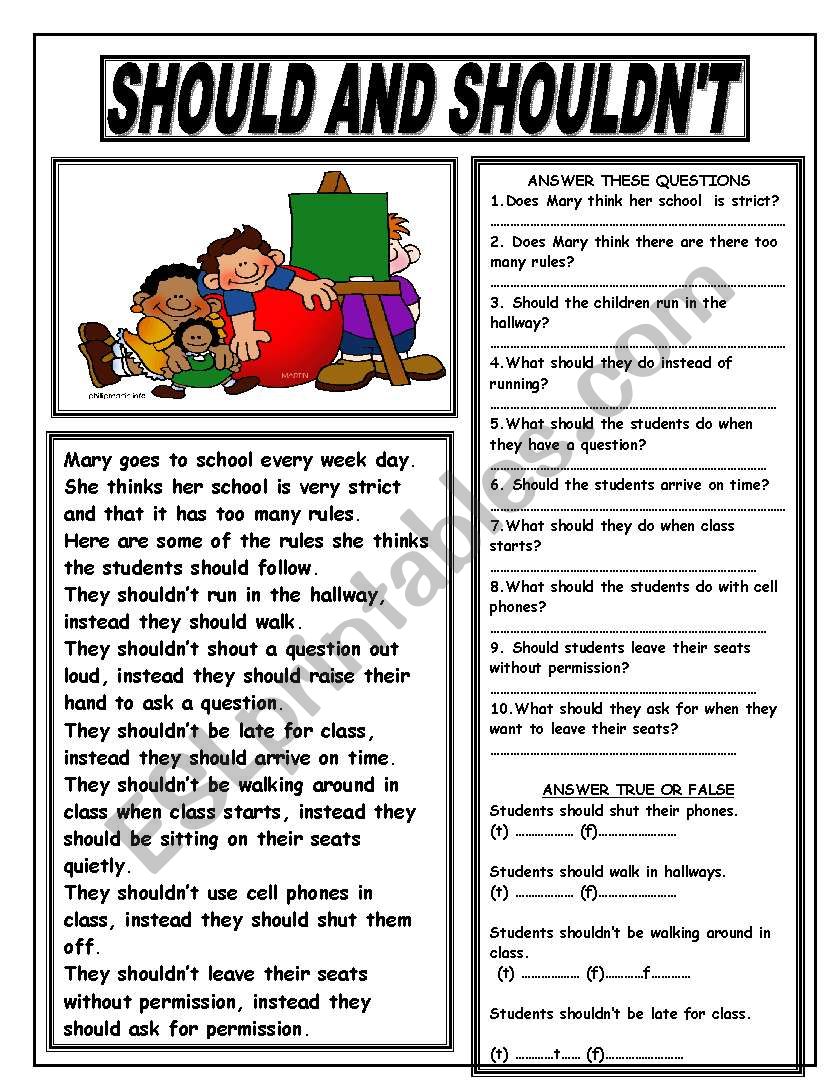
SHOULD AND SHOULDN´T ESL worksheet by GIOVANNI
SHOULD - SHOULDN'T. Giving Advice. A1 practice aimed at beginners and weak learners. Students fill in the gaps with should or shouldnb't and the verb given according to the picture. 30851 uses. IzaMarie. Should, Must and Have to. Use and practice of should, must and have to - short explanation + exercises. 24264 uses.

Should or Shouldn´t worksheet English worksheets for kids, Teaching
Complete the sentences with should or shouldn't and the verb in brackets. Show example. 1. It's cold. You a warmer jacket. (to take) should take. 2. The students their mobile phones in the exam. (to use) shouldn't use.
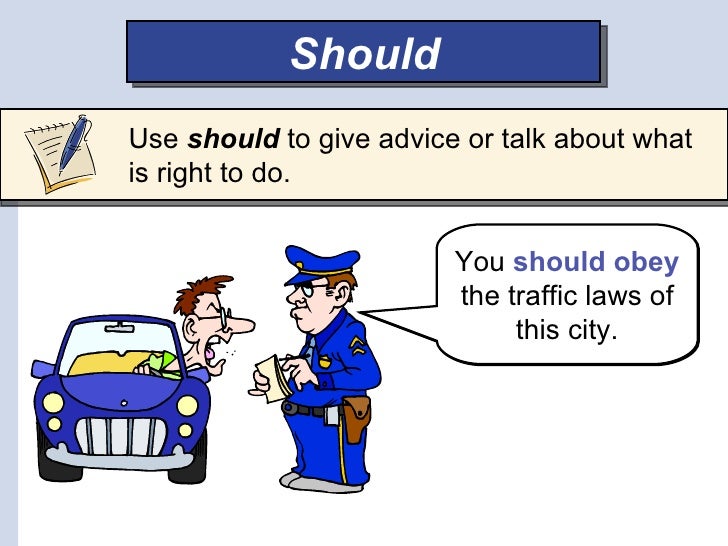
Preposition of place Mind Map
Exercise 1. Complete the sentences using should, shouldn't and the words in brackets ( ). 1 You have a great job; you (change) it. 2 You (drink) so much coffee; it's bad for your blood pressure. 3 The government (help) people. 4 It's an incredible film.

Should shouldn’t, future with will won't, vocabularies Teaching Resources
We use should and shouldn't to give advice or to talk about what we think is right or wrong.; You should means something like I think it is a good idea for you to do it.; You shouldn't means something like I think it is a bad idea for you to do it.; Should is used to express the opinion of a speaker and often follows I think or I don't think.; Examples. You look tired.

Uso de SHOULD/SHOULDN’T Gramática (2023)
Pick it up and use one of the role plays in your next class. Available on: Amazon (paper back / Kindle) or Gumroad (PDF, Word, Epub, Mobi). These conversation questions are designed to help ESL and EFL students practice should and shouldn't. Pass em out and let the advice fly!
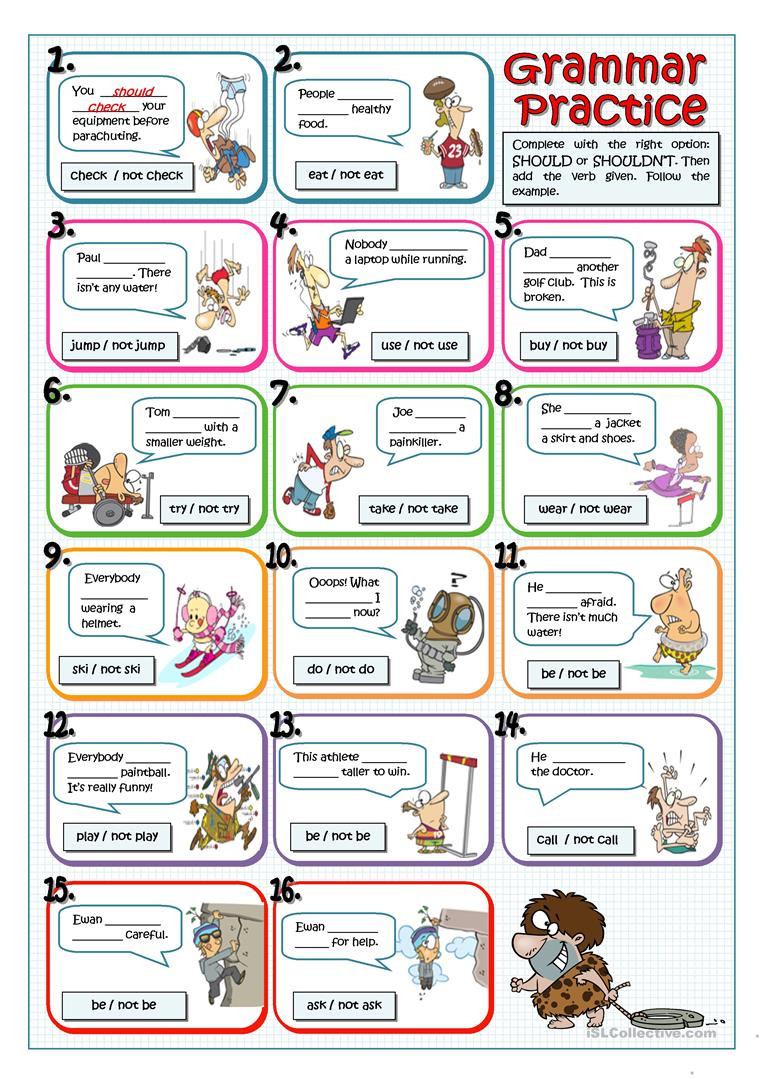
Should Shouldn T Worksheet —
Should And Shouldn't - The Modal Verbs. Should is a modal verb. Modal verbs follow these rules: Modal verbs do not take any endings like -s, -ed or -ing (never 'shoulds' or 'shoulded') Modal verbs are followed by the base form of another verb (should do, should be) Modal verbs make questions by inverting the subject and the modal verb.

Should / shouldn’t Teaching Resources
In this video you will learn the usage of the modal verb "should", in affirmative sentences and negative sentences.En este vídeo aprenderán el uso del verbo.